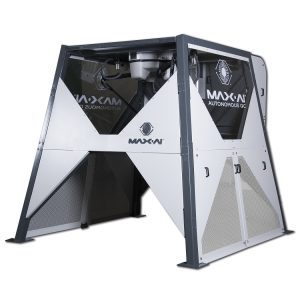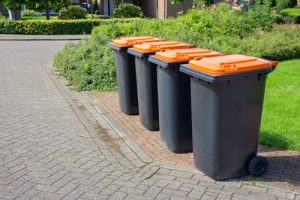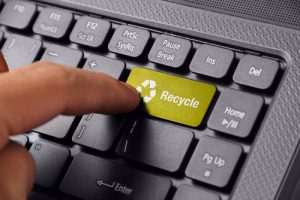 A startup is using microwave technology in an innovative conversion process that allows for small units that can be sold to large plastics generators and other stakeholders.
A startup is using microwave technology in an innovative conversion process that allows for small units that can be sold to large plastics generators and other stakeholders.

 A startup is using microwave technology in an innovative conversion process that allows for small units that can be sold to large plastics generators and other stakeholders.
A startup is using microwave technology in an innovative conversion process that allows for small units that can be sold to large plastics generators and other stakeholders.
A global recycling trade group says China has rekindled its scrutiny of imported plastics.
A European consumer-protection official recently called Coca-Cola’s PlantBottle claims greenwashing. The soda giant’s response? Sustainability is complicated.
 In the not-too-distant future, artificial intelligence may see and control all that’s happening in a recycling facility. But first, it’s going to do some work on a quality control line.
In the not-too-distant future, artificial intelligence may see and control all that’s happening in a recycling facility. But first, it’s going to do some work on a quality control line.
 HDPE frac-melt mixed colors regrind from post-consumer and post-industrial scrap sold April 21 at 42 cents per pound picked up U.S. South, up 3 cents per pound from business done in early April.
HDPE frac-melt mixed colors regrind from post-consumer and post-industrial scrap sold April 21 at 42 cents per pound picked up U.S. South, up 3 cents per pound from business done in early April.
 Plastic recycling in Minnesota decreased 13 percent in 2015, according to the latest annual report that covers a transition year as the state works to improve its recycling and waste management data reporting.
Plastic recycling in Minnesota decreased 13 percent in 2015, according to the latest annual report that covers a transition year as the state works to improve its recycling and waste management data reporting.
 Together, they provide museum tours, child health and education centers and adult financial literacy classes. Continue Reading
Together, they provide museum tours, child health and education centers and adult financial literacy classes. Continue Reading
 EPEAT and other eco-labeling initiatives are helping boost the use of recycled content in plastics used for electronics, an HP executive said recently.
EPEAT and other eco-labeling initiatives are helping boost the use of recycled content in plastics used for electronics, an HP executive said recently.
 A container deposit system is set to be introduced in Australia’s most populous state, and Pepsi develops a game to get kids in Poland excited about water bottle recycling.
A container deposit system is set to be introduced in Australia’s most populous state, and Pepsi develops a game to get kids in Poland excited about water bottle recycling.
 High impact polystyrene regrind prices fell the second week in March, pushed lower by excess availability and static prime polystyrene pricing.
High impact polystyrene regrind prices fell the second week in March, pushed lower by excess availability and static prime polystyrene pricing.
